Organizers
The official organizer of Polyglot Gathering 2024 is E@I, a non-profit organization based in Slovakia, which coordinates various projects supporting language learning (lingvo.info, slovake.eu, lernu.net, deutsch.info, russky.info, polski.info among others).
Peter Baláž, in Esperanto known as Petro, is an Esperantist, publisher and editor. He lives in Slovakia and speaks, to various degrees, Slovak, Czech, German, Polish, Russian and English, as well as Esperanto. Peter is especially active in the international Esperanto movement and educational projects, and in 2005 he became the coordinator of E@I. He is also known as an organiser of international events (mainly, but not only, Esperanto meetings). He owns the Slovakia-based publishing firm Espero, founded in 2003, which publishes mainly Esperanto works. He has been a core organizer of the Polyglot Gathering since 2017. For more info see Wikipedia.
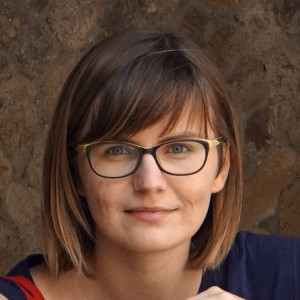 Dorota Rodzianko
Dorota Rodzianko[dɔˈrɔta rɔˈd͡ʑaŋkɔ]
Administration and finances
dorota.rodzianko@polyglotgathering.com
Dorota is from Poland and currently lives in Slovakia. Economist according to her diploma, Esperantist according to her heart. Master of tables and papers. Can’t sleep well if she is not organizing something. Since 2010, she has been organizing international events in various European cities and countries. She has experience in organizing events with up to 1300 participants. She has been a core organizer of the Polyglot Gathering since 2017.
Matthieu is from France but has been living in Austria for three years, after 7 years spent in Slovakia. He studied computer engineering. He speaks (to various degrees) French, Esperanto, English, Polish, Russian, Slovak and German; he is currently busy improving his Polish and German and trying not to forget Slovak. Aside from languages and travelling, he likes science (especially astronomy), cooking and bicycling. He also has a blog and a YouTube channel about languages. He has been a core organizer of the Polyglot Gathering since 2017.
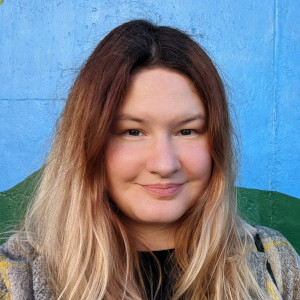 Sonja Zaretskaia (Соня Зарецкая)
Sonja Zaretskaia (Соня Зарецкая)[ˈsonʲə zɐˈrʲet͡skəjə]
Social media, administration
sofia.zaretskaia@polyglotgathering.com
Sonja was born in Moscow. Besides Russian, she speaks English and Esperanto. Living in Slovakia, she works on her Slovak. She loves dogs and sloths, reads on mental health, and dreams of a tattoo related to Van Gogh’s art.
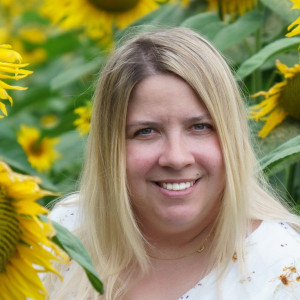 Marta Melnyk (Марта Мельник)
Marta Melnyk (Марта Мельник)[ˈmɑrtɐ ˈmɛlʲnɪk]
Cultural program
Marta Melnyk is a polyglot coming from Ukraine. Languages are her hobby. She like learning, teaching and creating languages courses, while her main field of work is in IT. She speaks fluent Ukrainian, Polish, German and English, but has different levels of other languages. Her polyglot mission is to encourage others to learn Ukrainian.
Elisa Polese is not just a language teacher but a dedicated language coach, and author. Her passion for languages has led her to study over 25 languages, and she teaches 13 of them including Italian, German, English, Spanish, Russian, French, Dutch, Catalan, Portuguese, Greek, Hindi, Arabic, and Esperanto at various levels.
Elisa employs ICF techniques and “Smart Learning” strategies to help her students overcome language learning and mindset barriers, guiding them to achieve their linguistic goals within a very short time. Her lessons and workshops are designed not just to significantly improve language skills but enable students to begin speaking one or more languages from the very first day.
Elisa is renowned for her dynamic presentations and workshops about language learning, multilingual teaching & learning, intercultural communication, and her passion for life coaching applied to language learning.
She has lived and taught in the UK, Russia, Germany, Spain, France, Italy, and Switzerland. Elisa holds an MA in International Communication from the University of Modena and Reggio Emilia, Italy, and another in Didactics from the University of Siena and Perugia, Italy. She also has BAs in Translating and Interpreting from the University of Bologna, Italy, and the University of Grenoble, France. Furthermore, she holds the CELTA certification from the University of Cambridge.
Currently, Elisa is focused on language & life coaching, and on her language programs and courses that combine the best of her teaching method and heer experience on mindset in language learning.
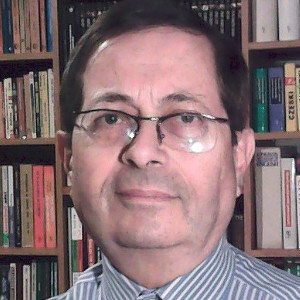 Andrzej Olszak
Andrzej Olszak[ˈandʐej ˈɔlʂak]
Language practice rooms
Andrzej is a man of many professions, often connected with his hobby. Officially, he is a power engineering engineer but he used to be a computer programmer, high school physics teacher, heating specialist, urban planner, wood sculptor, translator of computer science books and painter. He painted and sold over 500 oil paintings in a gallery in Paris.
Now he has two jobs. The first is energy planning at the Warsaw City Hall in Infrastructure Department. The other is the Woobie Doobie music recording studio, where he works with his son Wojtek, who is the composer of a song well known in Poland, Jestem kobietą. Andrzej’s latest hobby is learning foreign languages. Currently he is learning more than 30 languages.
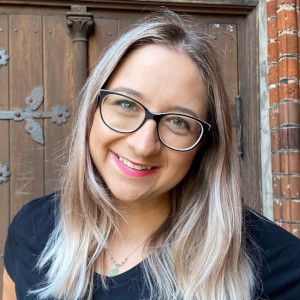 Ewa Wilczek
Ewa Wilczek[ˈɛva ˈvʲilt͡ʂɛk]
Coffee breaks, on-site help
Ewa was born in 1998 in Wrocław where she grew up and now studies two courses: Italian philology and management. She’s a born workaholic, words such as boredom and resting do not exist in her dictionary and she reaches every goal she sets for herself. She loves travelling, reading books and couldn’t imagine life without studying, especially languages (she’s now studying Esperanto and Spanish). Her interests are history of World War II and music (she sings and used to learn to play the violin, cello and piano).
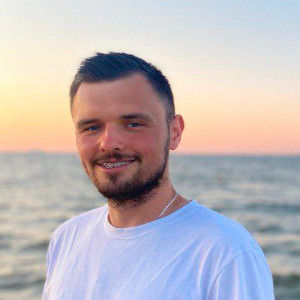 Bartłomiej Boguń
Bartłomiej Boguń[barˈtwɔmjɛj 'bɔguɲ]
Coffee breaks, on-site help
Bartek was born in 1998 in a small town near Wrocław.
Right now he lives and works in Wrocław (he is now a CNC programmer). He may not speak in a lot of languages (only 2) but in his workfield he knows a lot of programming languages.
He is intrested in studying more and more in his workfield but in a free time he likes hiking and going on a trips. He is very calm and you can speak with his about literally about anything (even if he has no idea what you’re talking about, he’ll try to learn something about it).
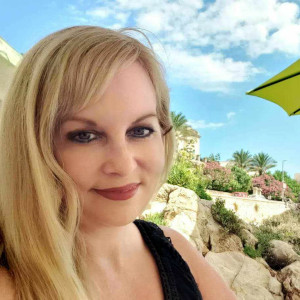 Maureen Millward
Maureen Millward[mɔːˈɹiːn ˈmɪlwəd]
Program, speakers
Maureen Millward (also known as Máirín in Irish) is a polyglot from Scotland. Born into a monolingual household, she now speaks 9 languages on a regular basis at advanced or intermediate level. These are English, Scots, Italian, Spanish, French, Portuguese, Catalan, German and Afrikaans. Her best languages enabled her to work within the European Finance Industry and she went on many business trips to Italy and Spain over the years.
Her languages have enabled her to travel extensively and independently to around 60 countries.
She writes about languages & travel on her blog.
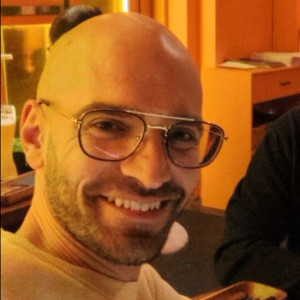 Philippe Rendulić
Philippe Rendulić[filip ˈrɛndulit͡ɕ (ʁɑ̃dylik)]
Evening program
Growing up bilingual in a country with four official languages and dozens of dialects made him quickly embrace linguistic diversity. Since the first Corona lockdown in 2020, linguistics and language learning have become his hyper-fixation. Seeing how much this topic is still suffering from outdated misconceptions, he created Punk Linguistics, a pop science project aiming at debunking the common myths and wishing to inspire everyone to learn languages.
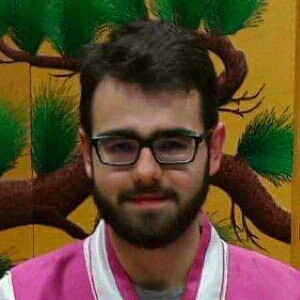 Rafał Darasz
Rafał Darasz[ˈɾafau̯ ˈdaɾaʃ̪]
Rafał was born in the southeastern part of Poland and now lives in Warsaw where he works and studies Polish Sign Language Philology and Baltic Philology. He also has a master's degree in Sinology. His passion for languages started in his early teens and has been pursued by him ever since. He speaks Polish, English, German, Mandarin Chinese and Esperanto and to varying degrees – Italian, Czech, French, Spanish, Lithuanian, Russian and a bunch of others. He also can use Polish Sign Language (PJM) and knows some basics of ASL, IS and Ukrainian SL. He specializes in sign linguistics and plans to continue his career at a university.
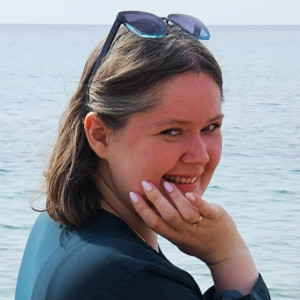 Zuzanna Yevtushyk (Євтушик)
Zuzanna Yevtushyk (Євтушик)[zuˈzanna jɛfˈtuʂɨk]
Program, on-site help
Zuzanna is a Polish linguist and languages learning enthusiast. However, her biggest hobby is teaching her native language – Polish to all interested in it, what is also her profession and the main job. She finds a lot of fun in academic research as well. Her scientific interests include phonetics, phonology, contrastive linguistics and language acquisition, wherein she seeks to examine the tenuous possibilities of how to teach Polish better.
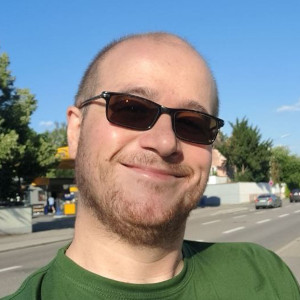 Leonardo Ricci
Leonardo Ricci[leoˈnardo ˈritt͡ʃi]
Volunteers coordinator
Leonardo is originally from Italy, but currently lives in southern Germany, where he is a freelance corporate trainer for Business English, Italian and French. He has also lived in England and France, and he speaks, in varying degrees of fluency, Italian, English, French, Spanish, German and Portuguese. He is currently trying to learn Ukrainian and Esperanto.
When not learning or teaching languages, Leo enjoys playing the guitar, cooking, travelling, playing chess, reading pretty much anything he can put his hands on, going on long walks and smiling all the time for no reason whatsoever.
Volunteers and interns from E@I
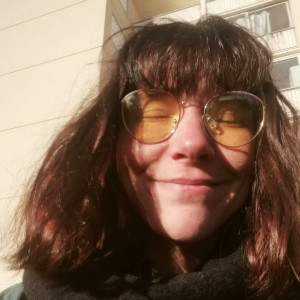 Léa Gavoille
Léa Gavoille[lea ɡavwal]
On-site help
I studied cabinetmaking before starting to learn Esperanto in September 2023 as part of my civic service volunteer work, which then took me to Slovakia to work for E@I for the second half of the volunteering. I arrived in this world (the one of people who speak 15,000 languages) a bit by chance, and I have to say that it’s quite pleasant to discover a new environment. With my broken English and improveable Esperanto, I realize that when you’re in this environment, mastering languages comes in handy. For my part, I’m going to rely on deduction and sign language while (actively) waiting to make progress.
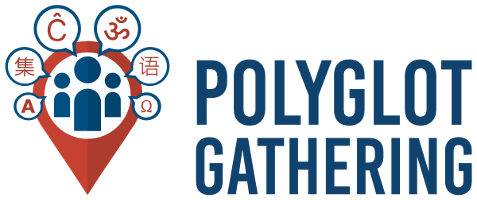
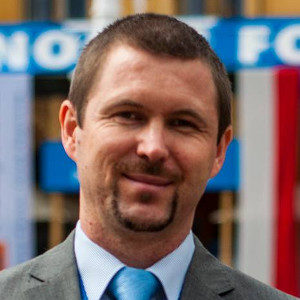 Peter Baláž
Peter Baláž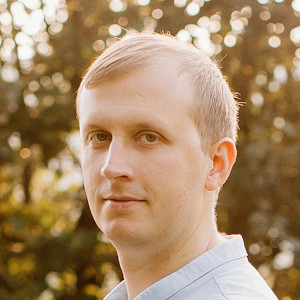 Matthieu Desplantes
Matthieu Desplantes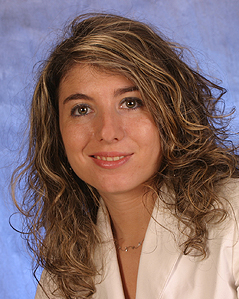 Elisa Polese
Elisa Polese